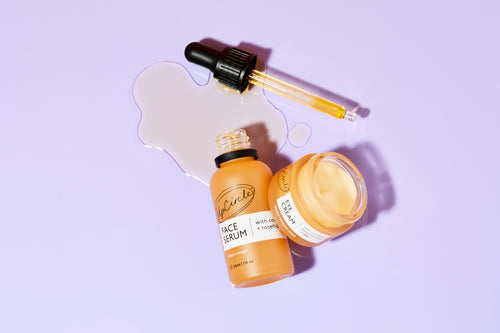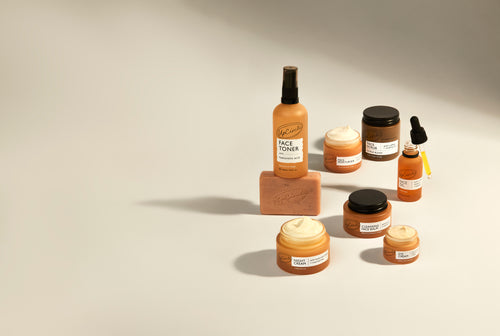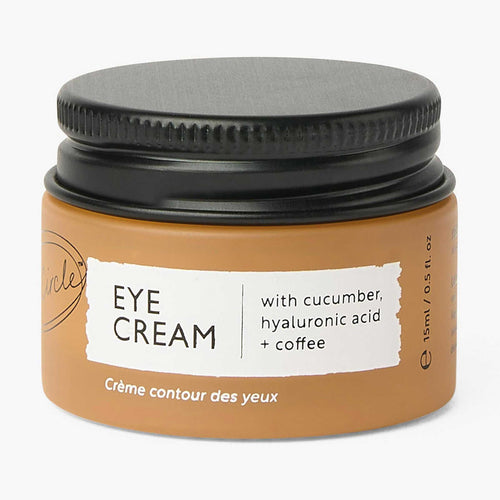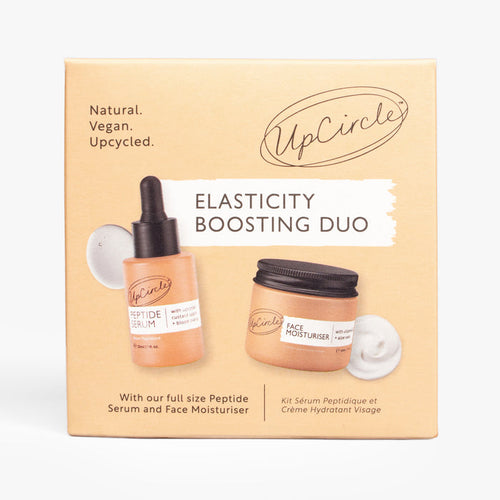It may seem like a strange time of year to write about sun damage and using SPF, but sunscreen isn’t only reserved for the days when you can feel the sun glaring down on you. It’s incredibly important to use sunscreen year-round, no matter the weather.
From the lovely warm sunny days to rainy and even snowy days, using SPF helps to protect your skin, which works so hard to protect you from bacteria, free radicals and other damage.
Discover what sun damaged skin, lips and hair might look like, as well as important information about photoaging and exactly why SPF is so important.
What is photoaging?
Photoaging is the medical term used to describe sun damage on the skin. This includes things such as hyperpigmentation, keratosis and sun damage spots.
What does sun damage look like?
Sun damage looks different depending on the part of your body that’s been impacted. However, there are some common themes you’ll find with sun damage, no matter if it’s your skin, lips or hair that’s damaged, including dryness and irritation.
Sun damaged skin
If your skin becomes sun damaged, you can expect to contend with a nasty and potentially painful sunburn in the short term, but that’s not all. Sometimes even without the skin becoming burnt, sun damage can build up over time.
When this happens, the skin can experience a number of changes to its appearance and feel. These can include: wrinkling, redness, a rough and uneven skin texture, decreased elasticity of the skin, and among other things, pigmentation changes.
A skin condition called melasma can often be mistaken for sun damage. A skin pigmentation condition, melasma is more common in women and those with darker complexions. It is characterised by dark blotches or spots on the skin, particularly the face. While sun damage can make melasma worse, melasma can also be present without sun damage.
Sun damaged lips
When it comes to sun damage on your lips, it may not be as easy to spot due to the natural pigmentation of the skin. When lips become sun damaged, you may notice changes in the pigmentation of your lips, whether that be a darker lip colour than usual, or areas of discolouration. Lips may also change texture and become rough or scaly.
It’s worth noting that the skin on your lips is much thinner and more sensitive than the skin on the rest of the face, so taking care of your lips is essential.
Sun damaged hair
Many people probably won’t have even thought about the fact that our hair can become sun damaged just as our skin and lips can.
When the UVA and UVB rays from the sun reach your hair, they also cause damage, much like to your skin – just without a red sunburn to let you know! This can present as dull, dry and frizz-prone hair.
If we’re thinking about what actually happens when your hair becomes sun damaged, the protective moisture barrier that protects your strands can break down, causing your hair to lose moisture.
Types of sun damage to skin
Damage from the sun’s UVA and UVB rays can appear on the skin in various ways, from changes to the colour and tone of the skin, to the skin’s texture.
Hyperpigmentation
With years of sun damage, people can start to notice changes to the colour of areas of their skin. Hyperpigmentation is characterised by areas of lighter and darker skin, sometimes appearing as red or brown tones.
This can also be caused by things other than sun damage, like acne in the case of post-inflammatory hyperpigmentation.
In order to help fade hyperpigmentation of the skin, choose products that contain argan powder or oil, as these can reduce the body’s production of melanin which will help to minimise the effects of skin discolouration.
Our award-winning Face Moisturiser with Vitamin E is deeply nourishing, soothing and balancing for the skin. Formulated with argan kernel extract, this moisturiser is ideal to help minimise the appearance of hyperpigmentation. Rich in Vitamin E, this moisturiser helps to boost collagen production and is suitable for all skin types.
Vitamin C is another ingredient that can help to fade the marks caused by hyperpigmentation. It boosts the production of collagen and is especially effective on sun-damaged areas of skin.
Our best-selling Organic Face Oil with Coffee Extract is rich in argan oil and vitamin C, helping to fade dark spots and hyperpigmentation. It is also formulated with skin-loving rosehip oil and jojoba oil to lock in hydration, boosting collagen to keep the skin firm.
Keratosis
Solar keratosis, sometimes known as actinic keratosis, is where patches of skin become dry and scaly as a result of sun damage causing changes to the cell structure. Actinic keratosis in itself is not cancerous, but some cases of solar keratosis can eventually develop into skin cancer.
That’s why it’s absolutely essential to protect your skin from becoming sun damaged. The best way to do this is to use a high-performance mineral sunscreen that protects from both UVA and UVB rays.
Our Vegan SPF 25 is reef-safe, dermatologically approved and provides an essential physical defence against premature ageing caused by the sun. It is formulated with naturally derived non-nano zinc oxide to protect the skin and antioxidant raspberry seed oil to defend against free radical damage.
The plastic-free sunscreen is formulated with non-comedogenic sunflower oil as well as breakout-busting lavender oil, making it a great sunscreen for those with acne-prone skin.
Sun damage spots
Sunspots are small, flat dark areas on the skin which usually range in colour between tan and dark brown. They are also sometimes known as age spots or liver spots. Often resembling freckles, it can sometimes be hard to tell the two apart.
When comparing sun damage spots and freckles, it’s important to know some key characteristics of each. Sunspots tend to be one single darker area of skin that's larger than your average freckle. Whereas freckles often appear at a young age, and in groups.
However, it’s important to remember to get any new or changing marks on your skin checked out by a medical professional just to be safe.
Remember to wear your SPF each and every day, come rain or shine to help to protect your skin from becoming sun damaged. Use organic skincare packed with skin-loving ingredients to help strengthen your skin’s natural barrier and better retain moisture.







